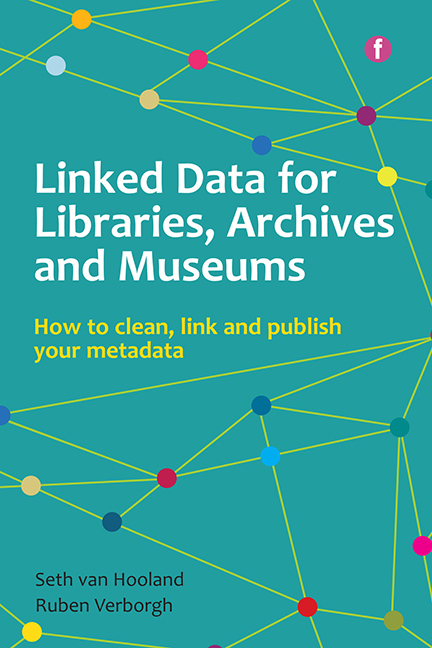7 - Conclusions
Published online by Cambridge University Press: 10 September 2022
Summary
Within this handbook we have focused on practical steps (modelling, cleaning, reconciliation, enriching and publishing) that allow you to understand how to benefit your institution and your users when adding metadata to the global pool of linked data. A lot of ground was covered in the five core chapters, and we necessarily had to sidestep some important global issues. In these conclusions, we want to take a step back from the operational side of linked data and reflect on the bigger picture.
Even the fiercest critic of linked data must acknowledge that the structured publication and consumption of data is increasingly affecting our day-to-day use of the web. Just launch a Google query with the name of a well known individual, a country or a product name, and you will see an information box with structured data from Freebase appearing alongside the traditional search results. Over the years to come, not only your search engine queries but also mobile phone, car navigation system or even fridge will be consuming linked data.
Now that you understand the conceptual and technological underpinnings of linked data, let us think critically about its global impact. Everyone agrees that search engines like Google have revolutionized how we access information on the web. Even if the advantages are tremendous, we cannot ignore some of the dangerous side-effects. Increasingly, we are confronted with personalized information, limiting our access to types of content that search engines and social networks know we have accessed before and therefore like. Through these funnelling practices, we are more and more confirmed in the views we already have and rarely confronted with information that might oblige us to question our beliefs. The initial ideal of the web as a promoter of the ‘global village’, in which the free flow of information stimulates understanding and dialogue, has been severely discredited by phenomena such as spamming, targeted marketing and cyber-balkanization.
As we have explained in Chapter 2, linked data theoretically holds the promise of creating a ‘global database’. By unleashing structured data from the confines of local databases, the linked data approach stimulates a better communication and re-use of structured data in a transparent manner.
- Type
- Chapter
- Information
- Linked Data for Libraries, Archives and MuseumsHow to clean, Link and Publish your Metadata, pp. 243 - 250Publisher: FacetPrint publication year: 2015



